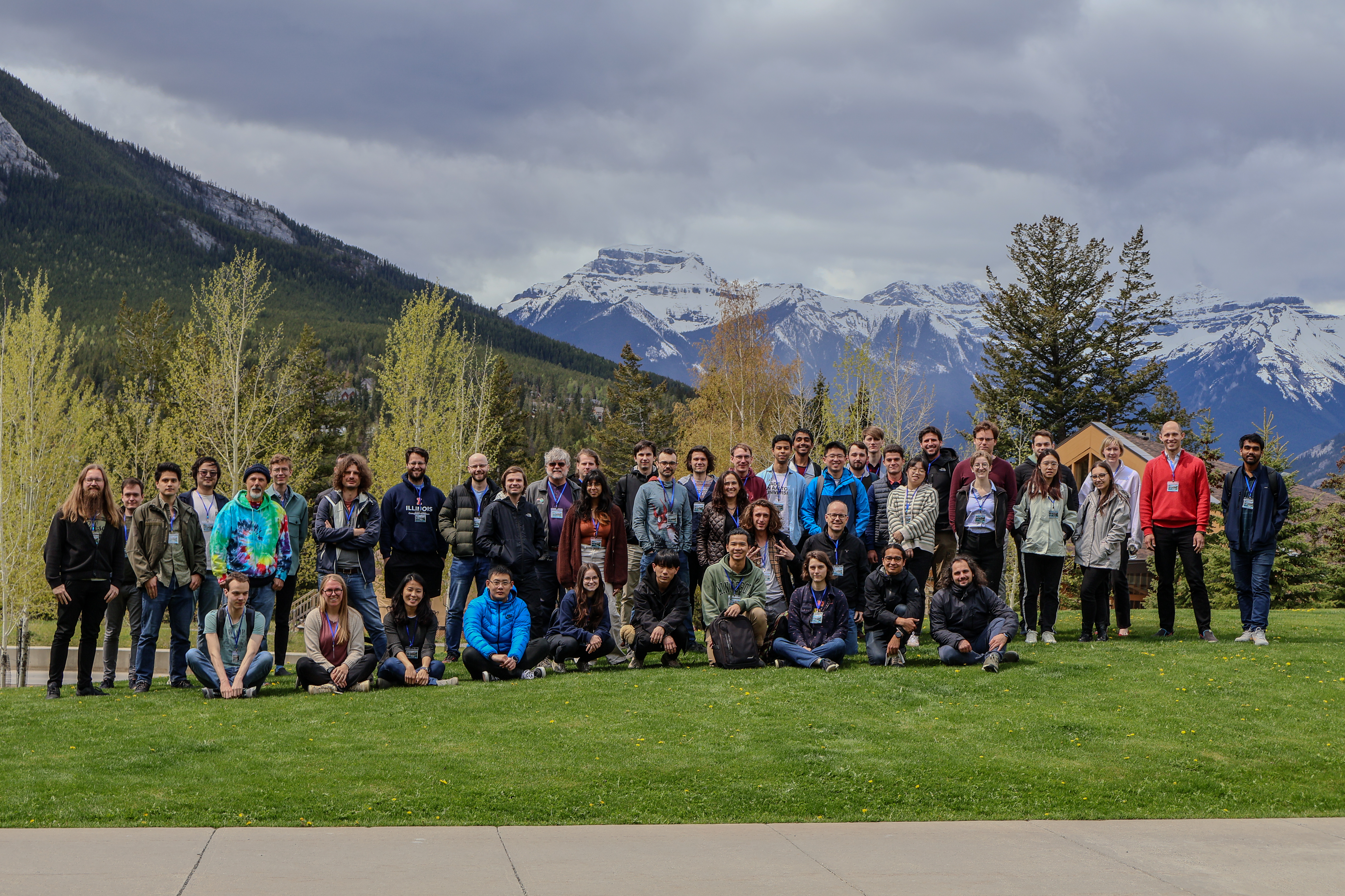ICAPS Summer School
The ICAPS 2024 Summer School is a wholesome lecture and lab series co-located with the International Conference on Automated Planning and Scheduling 2024. I took home technical knowledge, intellectual friends, and memory of a wonderful retreat in Banff.
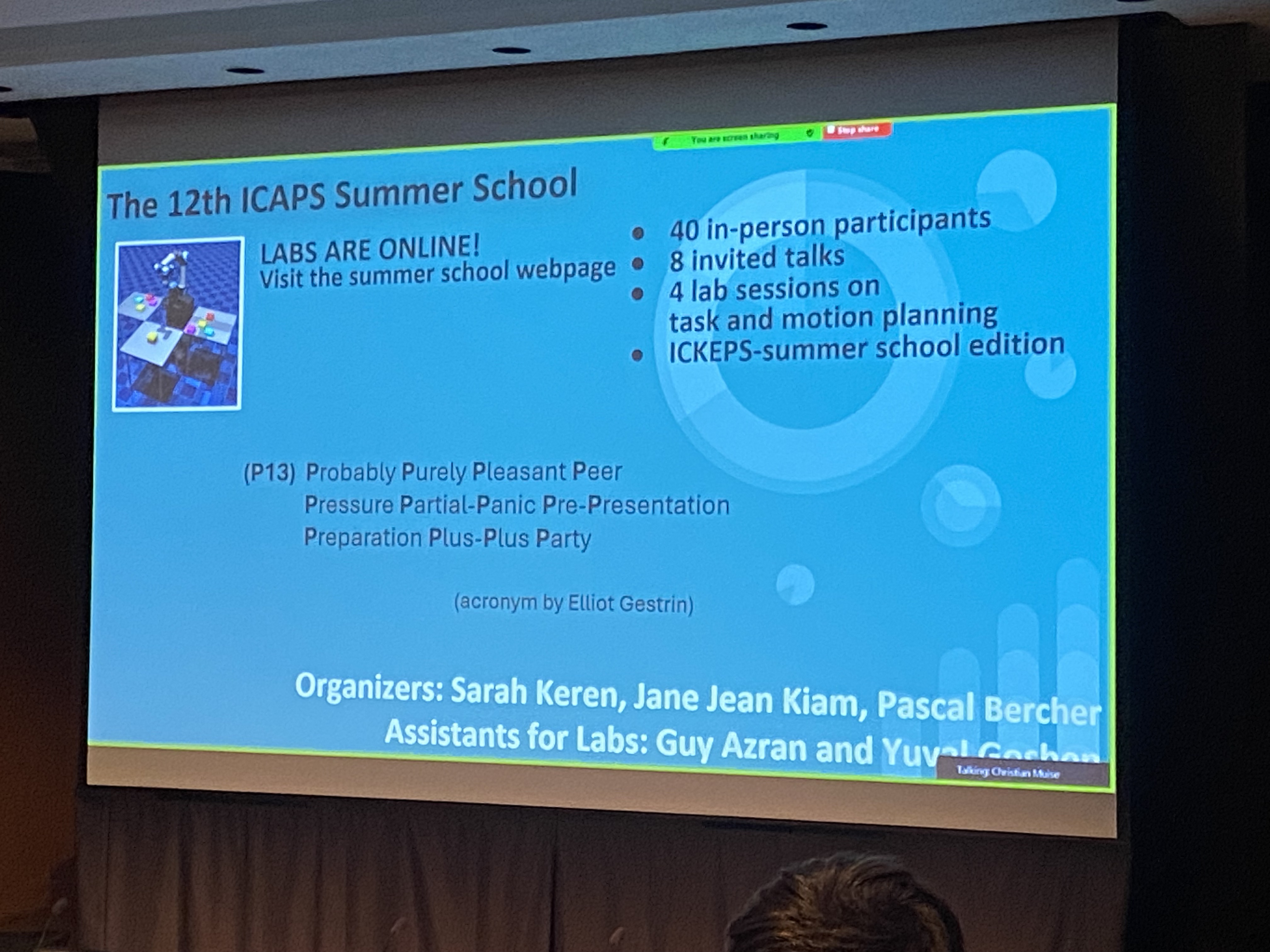
Contents
Fundamentally, planning is the class of problems where a series of actions in a state space needs to be found to go from an initial state to a goal state. This summer school covers Integrated Task and Motion Planning. This is largely understood in the context of robotics, where task planning refers to the planning problem in the high-level state space (e.g., building a house = get the bricks, then put the bricks on the ground, then blabla), while motion planning refers to the planning of actual kinematic motions of the robots (move from one joint config to another).
There are two parallel components of the school — morning lecture series and afternoon lab sessions.
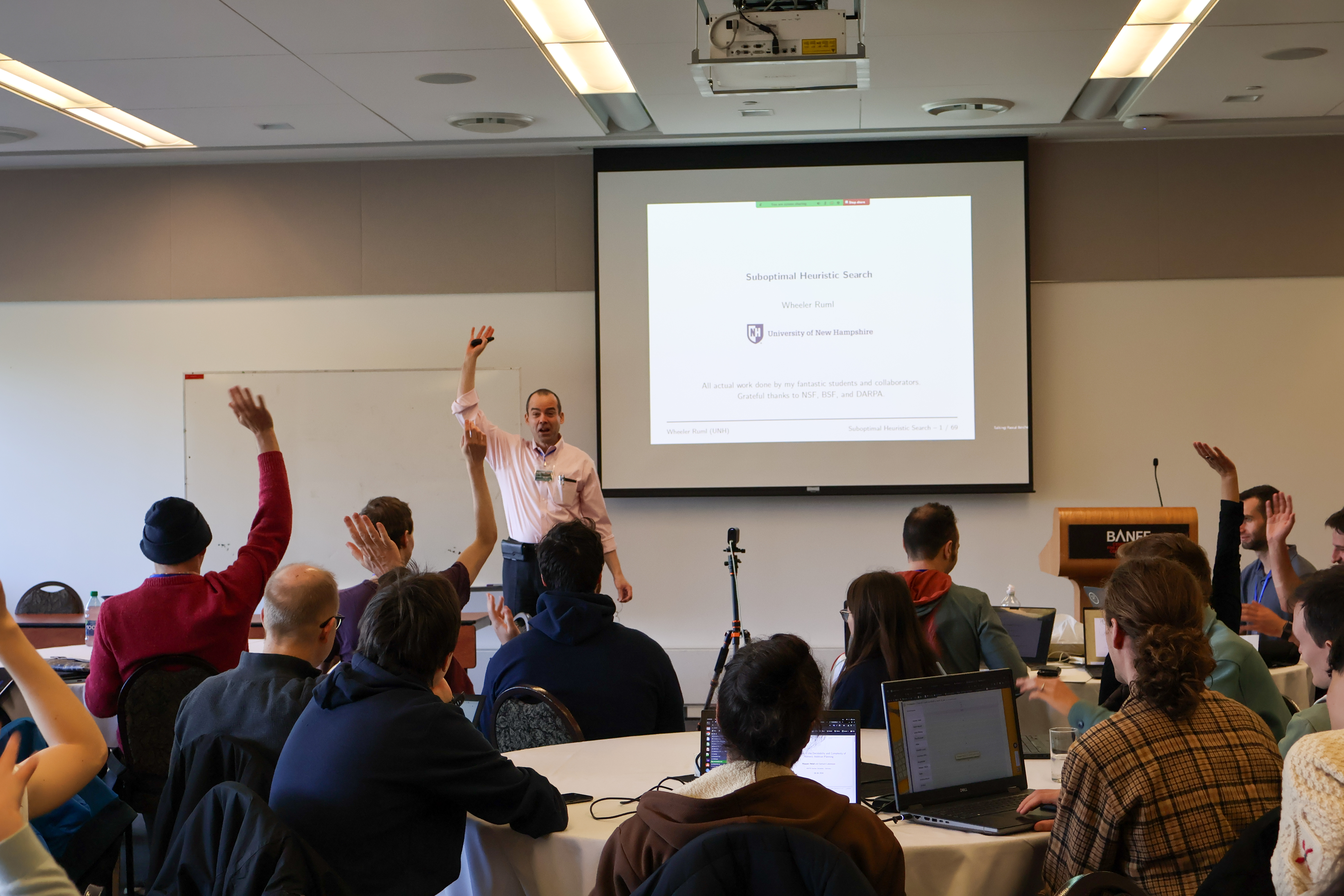
The lectures attempted to give a rough tour (in both senses) from planning to task and motion planning. It first started with Nathan Sturtevant (UAlberta) on A, weighted A, theories of Bidirectional Search, Budgeting Tree Search, where he emphasized planning is not a solved problem that is contained inside Chapter 2 of Russel and Norvig’s book. It was followed up by Wheeler Ruml (from U. New Hamsphire, with his ASMR voice) on the introduction to various types of suboptimal search and the argument that suboptimal search is much more practical. Then Pascal Bercher (ANU) introduced us to Hierarchical Task Network (HTN) Planning, which seems very powerful. The next four talks are discussions on the applications of planning in flights by Jane Jean Kiam (Germany), spacecrafts by Jeremy Frank (NASA), risk-bounded task and motion planning by Brian Williams (MIT), and finally uncertainty planning by Hanna Kurniawati (ANU).
The hands-on series started with an overview talk by Sarah Keren (Technion). The first lab introduced to domain modeling in PDDL (the DSL for planning domain definition). The second lab introduced to inverse kinematics and motion planning. The last two labs integrated them two. All labs were co-led by Guy Azran and Yuval Goshen, Sarah’s students, and can be found online. In the middle, the knowledge engineering competition ICKEPS was held with the challenge of engineering a domain for game testing in PDDL 2.1.
The town of Banff
The cost to get to Banff was expensive. But as soon as I got here, I immediately know why. Just look at the photos.
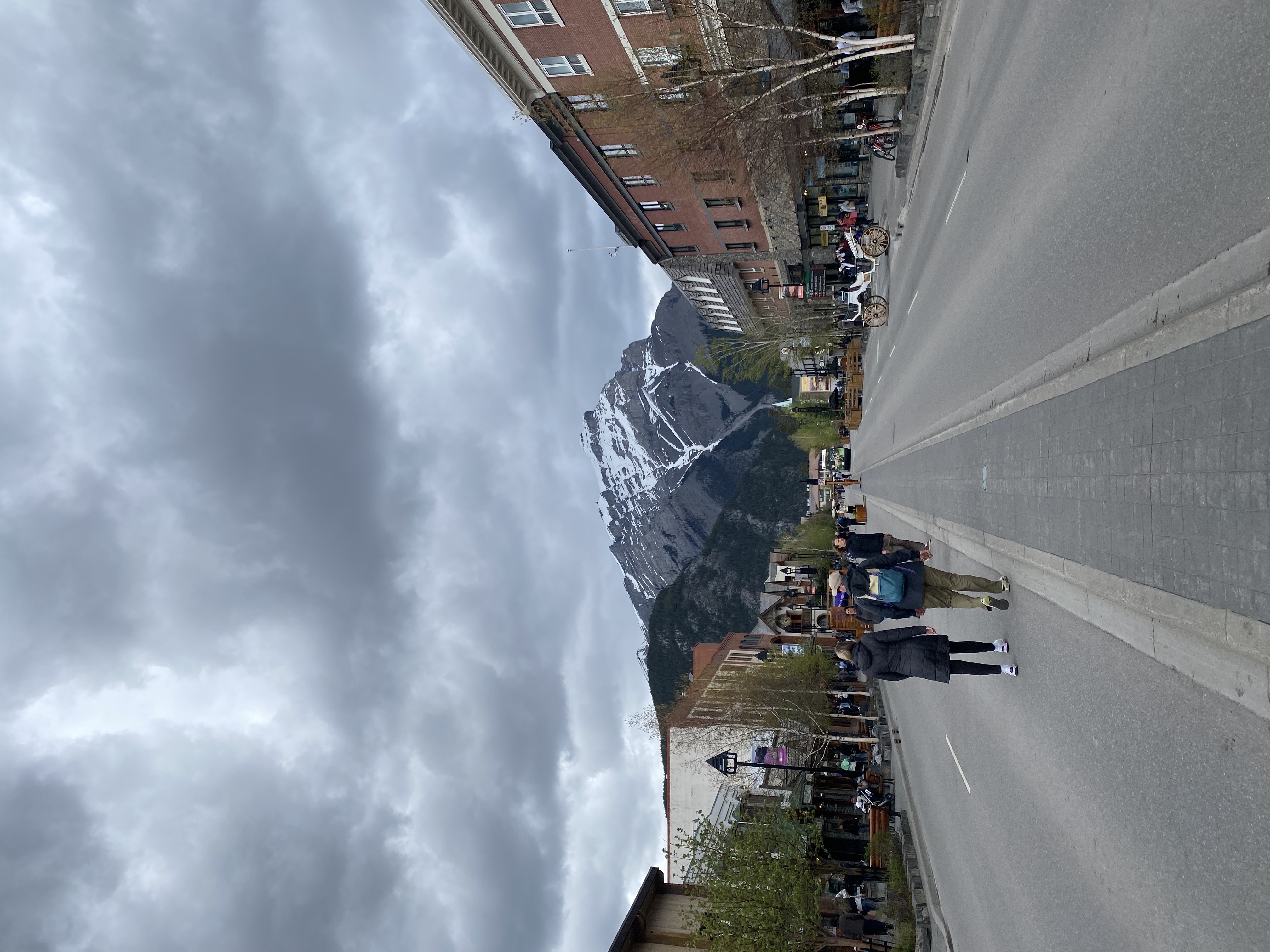
Banff Avenue
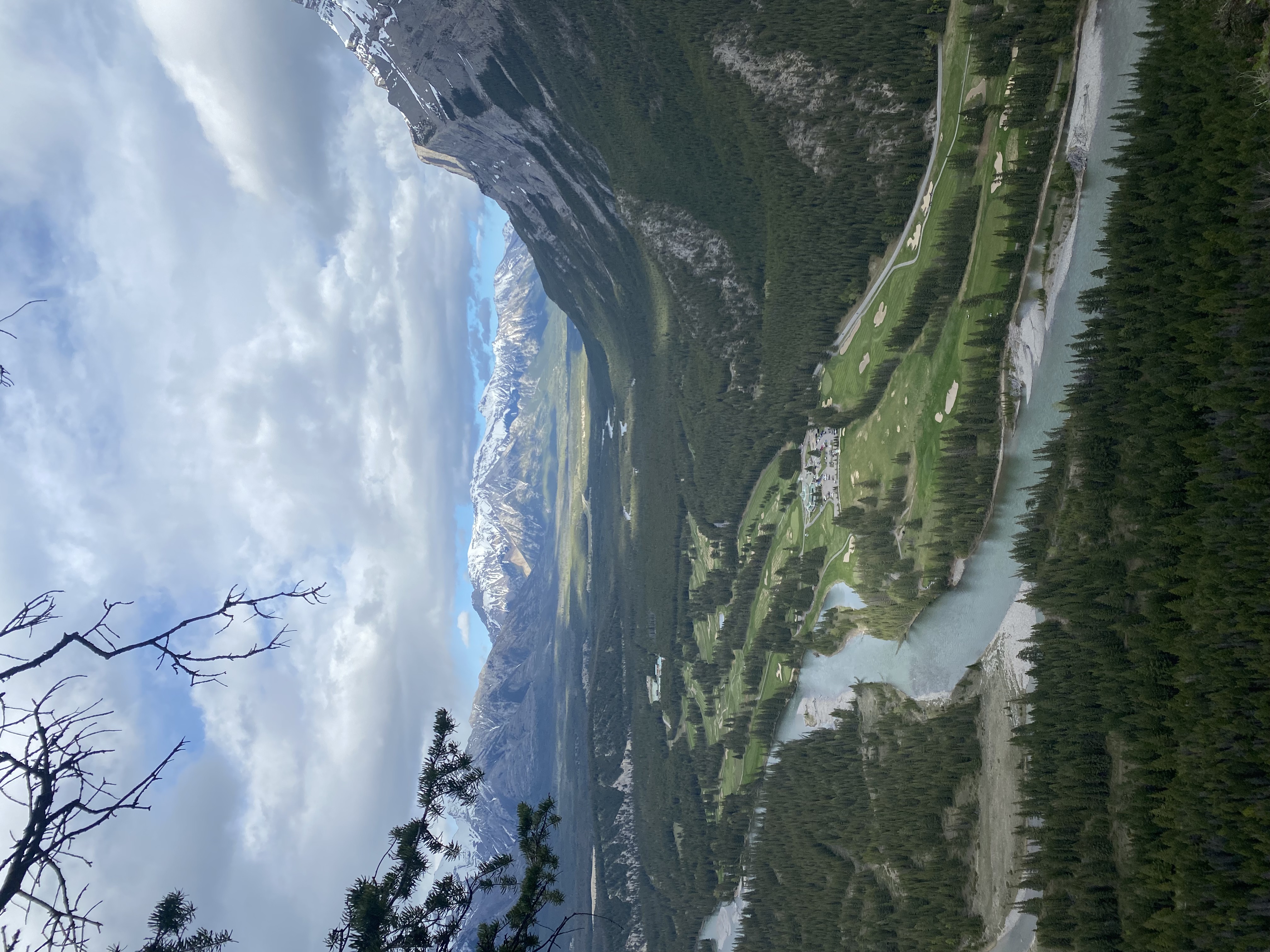
View of Banff from Tunnel Mountain
Friendship!
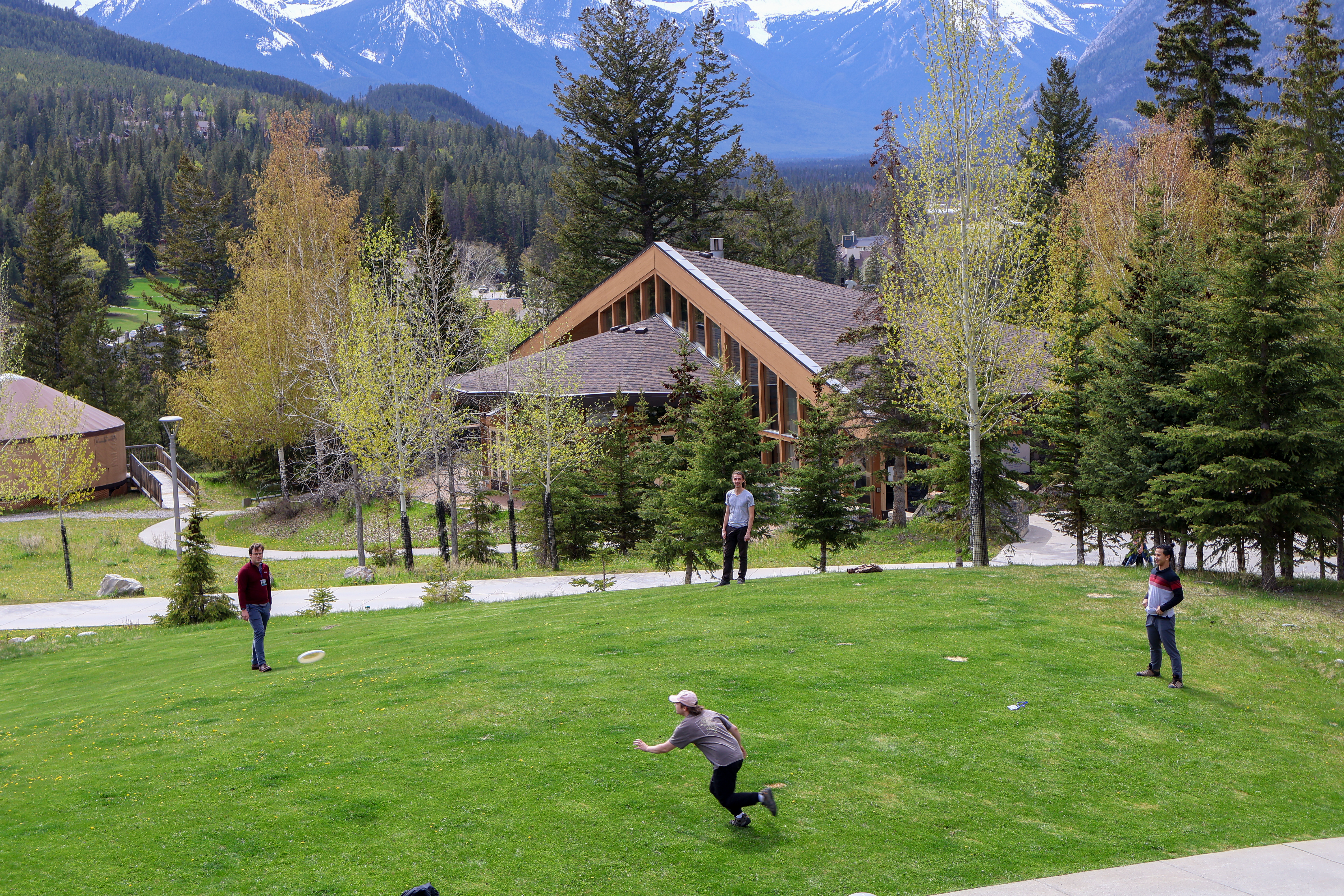
Even more valuable than the lectures are the friends I got to know from numerous planning labs in Europe and North America. I learned from this group of people in 2 weeks much more than from the cohort of CS PhD students at my school that I never got to meet (what a shame!) I learned that two students from 2 different continents can just meet at a conference and write an A*-conference paper together because “it is fun”, that the planning literature is beautiful due to the theoretical guarantees (and LLMs are ruining it???), that narrative planning is a nice field that combines planning, psychology, and NLP, that it is okay to get anxious before a presentation and it is beautiful to do mock presentations together, and that it is absolutely wondierful to drink beer or hike with colleagues after work.
